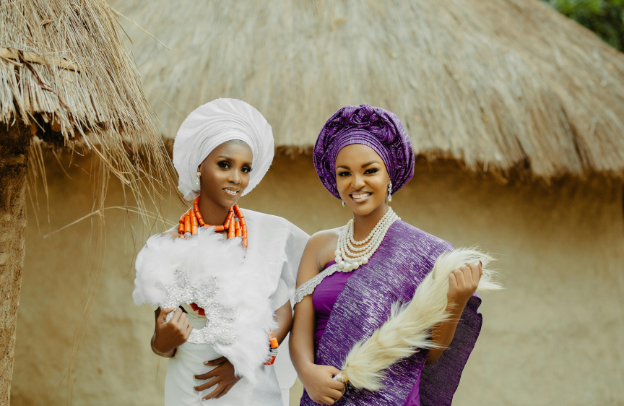Exploring Heritage and Building Connections: How Diaspora Group Tourism Enhances Cultural Exchange and Economic Development

What does Creating Lasting Connections mean? Now, imagine this for a moment. In a vibrant street of Accra, Ghana, a group of travelers from the African diaspora gathers around a local artisan, captivated by the intricate process of traditional Kente weaving.
Learn How to Leverage Your Story through our Story To Asset Framework.
This scene is emblematic of a growing movement where group travel serves not merely as a leisure activity but as a conduit for diasporans to reconnect with their roots, share resources, and forge enduring alliances with local communities.
Group travel has become a dynamic experience for cultural exchange and collaboration. One standout initiative in this space is DMTE: The Diaspora Memorial & Tourism Exchange—a program that curates immersive experiences far beyond traditional sightseeing.
Founded by WeDiasporan, DMTE is more than a travel initiative; it’s a transformative cultural journey. Designed to reconnect members of the African diaspora with their ancestral roots, it offers a meaningful opportunity to engage with heritage on a personal and communal level.
These thoughtfully curated journeys often include visits to historic landmarks, participation in cultural workshops, and in-depth conversations with local leaders.
The result is a deeper understanding of shared histories, contemporary realities, and the enduring connections between communities across continents.
See also Ghanaian Afro-dancehall star Stonebwoy Musical Pilgrimage: Uniting the Black Diaspora Through Sound
Such immersive experiences enable diasporans to contribute to local economies and social initiatives. By engaging directly with artisans, entrepreneurs, and activists, travelers can offer support through investments, knowledge exchange, and advocacy.
For instance, the African Diaspora Tourism platform highlights how cultural heritage travel can be a catalyst for economic development and cultural preservation.
Moreover, these tours often incorporate strategies to build collective memory and identity. Through storytelling, participants share personal narratives and ancestral histories, creating a tapestry of experiences that enrich the group’s understanding of their heritage.
This approach aligns with insights from WeDiasporan, emphasizing the role of guided experiences in fostering cultural memory and identity among diaspora communities.
One of the most significant outcomes of group travel is the formation of long-term networks. These networks become springboards for future collaborations, from business ventures to community upliftment initiatives.
For instance, after participating in heritage tours, some diaspora travelers would have invested in local businesses, supported school development projects, and even collaborated on policy advocacy with local NGOs.
Diasporans often come equipped with skills, education, and global exposure that, when connected to local knowledge, can yield transformative ideas. Through structured group tours, participants have launched joint ventures in agribusiness, cultural media production, and wellness retreats, bringing global attention to African ingenuity and creating reciprocal value.
These exchanges not only generate economic activity but also promote pride and ownership of cultural legacies.
Another layer of value lies in the intergenerational exchange of wisdom. Group tours often attract a diverse age range, from young professionals to elders seeking to fulfill lifelong dreams of returning to Africa.
These mixed-age cohorts naturally facilitate mentorship and cross-learning, deepening the sense of solidarity and collective responsibility within the diaspora community.
See also Creating a Sustainable Future: Collaborative Group Tourism and Its Role in Diaspora Development
Storytelling Is A Critical Memory-Building Strategy For Group Tourism
Storytelling plays a vital role in preserving history and fostering collective memory, especially in the context of historical injustices. As highlighted in UNESCO’s Slave Route Project, launched in 1994, sites linked to the transatlantic slave trade are not just destinations—they are powerful spaces for reflection, remembrance, and dialogue.
The project was created to break the silence surrounding slavery and the slave trade by supporting historical research, encouraging the transmission of memory across generations, and promoting intercultural dialogue. Stories shared at these sites often inspire a deeper sense of justice, cultural pride, and unity among visitors and local communities alike.
Through scientific collaboration and cultural partnerships, the Slave Route Project helps identify and preserve places of memory, build local capacity, and support global initiatives focused on reparatory justice and collective healing. These efforts also contribute to UNESCO’s broader mission of combating racism and discrimination by grounding anti-racist work in shared history and lived experience.
Diaspora-led tour groups also increasingly prioritize sustainability and community ownership. Instead of one-off visits, tours are designed around long-term impact, featuring repeat visits, local hiring, and community planning.
This approach shifts the paradigm from charity to partnership, where diasporans are not passive donors but co-creators of solutions.
The collaborative aspect of group travel is evident when diasporans and locals co-create artistic performances, culinary experiences, and entrepreneurial showcases. Events like the Chale Wote Street Art Festival in Accra exemplify this spirit of fusion, where creatives from across the diaspora and the continent exchange skills, perform together, and build lasting professional and personal bonds.
Beyond the tangible outcomes, the emotional and psychological healing derived from group travel cannot be understated. For many African descendants grappling with inherited trauma and identity loss, returning to the continent within a supportive group dynamic allows for collective healing. This experience fosters emotional intimacy and validation, providing a rare space where participants feel seen, affirmed, and empowered.
See also How Group Tourism Facilitates Ongoing Collaboration and Growth within Diaspora Communities
To ensure the long-term success of group travel as a diasporic tool, several best practices are emerging.
- First, co-designing itineraries with local communities ensures relevance, respect, and mutual benefit.
- Second, prioritizing education, history, and dialogue over entertainment deepens the experience.
- And third, embedding follow-up programs, like investment clubs, digital storytelling labs, or student exchange schemes, ensures that the momentum generated during the tour continues.
Looking ahead, group travel is poised to become an essential strategy for African diaspora engagement, diplomacy, and development. Governments and private sectors are recognizing this, as seen in initiatives like Ghana’s Year of Return and Beyond the Return campaigns, which have catalyzed billions in travel revenue and hundreds of new diaspora investments.
As the desire for reconnection, accountability, and cultural affirmation grows among diasporans, group travel will remain a vital bridge. It is through shared footsteps on ancestral land, collective learning, and strategic collaboration that diasporans can continue creating lasting bonds, not only with Africa but also with one another.
In the words of Senegalese scholar and cultural theorist Cheikh Anta Diop, “Culture is the glue that binds people together.” Group travel, when grounded in intention and inclusiveness, becomes one of the most powerful vehicles for nurturing that glue across continents, generations, and communities.
Learn How to Leverage Your Story through our Story To Asset Framework.





